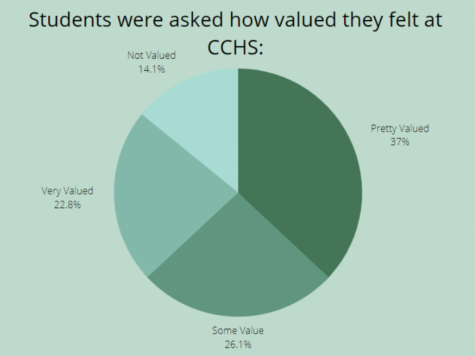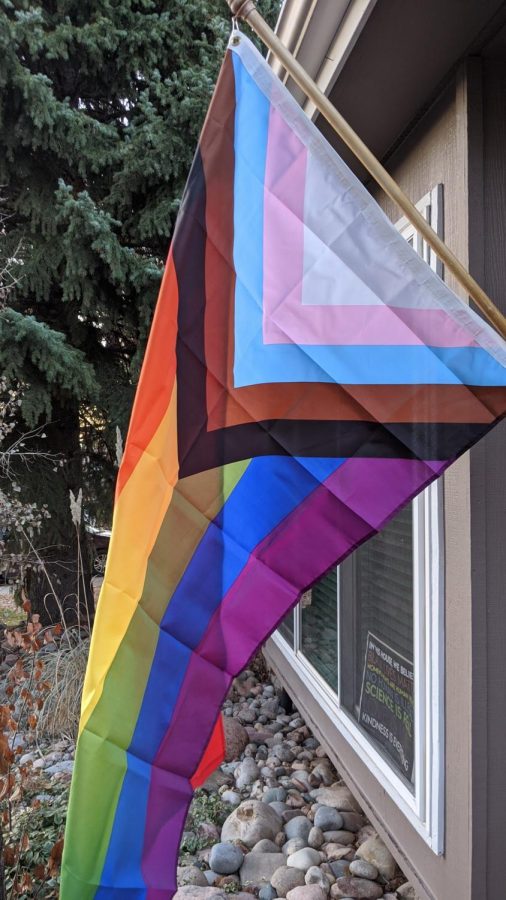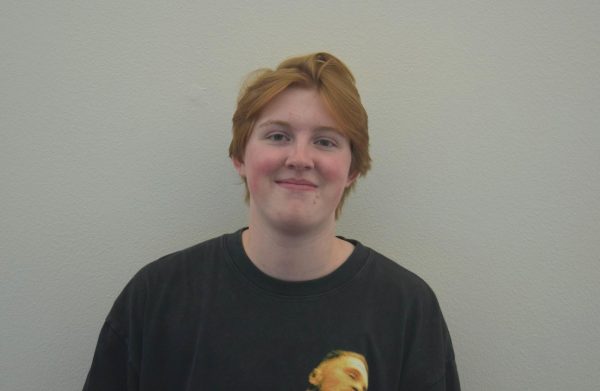Pronouns: One Small Gesture For One Big Impact
A growing conversation surrounding pronouns has evolved in recent years, impacting students at Creek. The increasing popularity of the topic is helping students feel more comfortable in their identity at school, even if it’s in small doses.
November 30, 2021
Gender and sexual identity are a hot spot in many places, whether it’s education, history, or day-to-day life, but rainbow representation is on the rise everywhere – including Creek. People can’t go through life without hearing pronouns everywhere. Most students would agree that it doesn’t feel good when others don’t respect their pronouns.
“If I had a dollar for every time someone has made fun of, not used, or disregarded they/them, or any non she/he pronoun, I’d have enough money to drop out,” sophomore Ben Ginsberg-Margo said in a USJ survey.
There’s an underlying truth that many students feel is true, that only specific pronouns at CCHS are accepted. Over 100 students who responded to a USJ survey about pronouns at Creek responded that she/her and he/him pronouns are the most accepted.
“Only the pronouns that are considered the ‘default’ are really accepted,” an anonymous responder said.
Acceptance and a sense of fitting-in have an impact on how safe and valued students feel. Students with negative experiences about pronouns said that they didn’t feel very valued at Creek.
“While most people can keep quiet about their negative opinions and thoughts, some people have the audacity to bully or joke about pronouns they feel are unusual,” sophomore Stella Williamson said.
Responders said that there is some feeling of nervousness surrounding pronouns, whether it’s when having them asked or asking someone their pronouns.
Some students would say that asking someone their pronouns can feel super awkward, but responders to the survey viewed having their pronouns asked as an amazing experience.
“Although I am cisgender, I am happy to answer when people ask my pronouns,” an anonymous responder said. “I believe it is an important thing when getting to know someone.”
Other students feel that having pronouns asked can be nerve-racking.
“Having and sharing certain pronouns is harder than others,” sophomore Sara Klapperich said. “I know that there are a lot of people with they/them pronouns that struggle with people actually using those pronouns – people will either make fun of them or misgender them purposely.”
Overall, experience with pronouns at Creek can vary drastically based on your outlook on the subject. Positive and negative experiences can shape your experience at school, students reported.

Other students who responded to the survey reported very positive experiences at CCHS, from making friends to feeling accepted and appreciated.
“I made two of my first friends at CCHS when they pointed out a pronoun pin that I made,” freshman Hammond Springer said.
Pronoun representation is on the rise, whether it’s in the media or at school. Some students feel like pronouns are slowly becoming more accepted at Creek.
“I absolutely feel like different pronouns are accepted at Creek, but only certain groups accept them,” senior Noah Gallardo said. “I think there are ‘cliques’ here at Creek that are homophobic, transphobic, and the like.”
Pronouns are everywhere, not just at school. Many students have tough experiences outside of Creek as well. These cliques exist in everyday life outside of school, and some students reported bad experiences with them.
“Me and a friend of mine were waiting in line at Subway, minding our own business, and a guy came up to us and started asking us questions like: ‘How many genders do you think there are?’ and ‘What’s your gender?,” junior Adrian de Araujo said. “He also said things like ‘I identify as a rock’, clearly trying to mock us and our gender identity despite not even knowing us at all.”
Most students would agree that these negative encounters don’t dim the good things about the impact of pronouns at Creek. Good experiences are the majority of what students responded with, but many believe having people respect their pronouns makes for a good environment at school.
Most responders would agree that other non-she/he pronouns are becoming more respected, as they’re being asked for more and are more widely used.
So many students have different experiences with pronouns, and every encounter is completely different. Some students feel like Creek is becoming more accepting as teachers start to ask for pronouns, and some students haven’t had their pronouns asked by teachers or classmates in multiple years of high school. Students say that having your pronouns asked may be scary, and it may be nerve-racking to ask, but it makes a person’s day better in the long run.
“I think it’s great that more people are starting to ask others their pronouns,” an anonymous responder said. “[Many] grew up in a time when that simply wasn’t a talked-about thing, and I feel valued when someone wants to respect my pronouns and make me feel comfortable.”



![Senior Stefven Klein sits in a tree with his freshly finished, historically accurate, handmade outfit. Klein has been sewing since he was five years old and started making his own clothes only a few years ago. “[Sewing] helps you kind of slow down your mind and focus on what's happening in the moment,” he said. “You realize that if you're putting stress into what you're doing, you're going to mess up, and you need to take that step back to calm yourself down.”](https://unionstreetjournal.com/wp-content/uploads/2021/11/Screenshot_20210411-181906_Video-Player-e1637099117728-300x392.jpg)


















